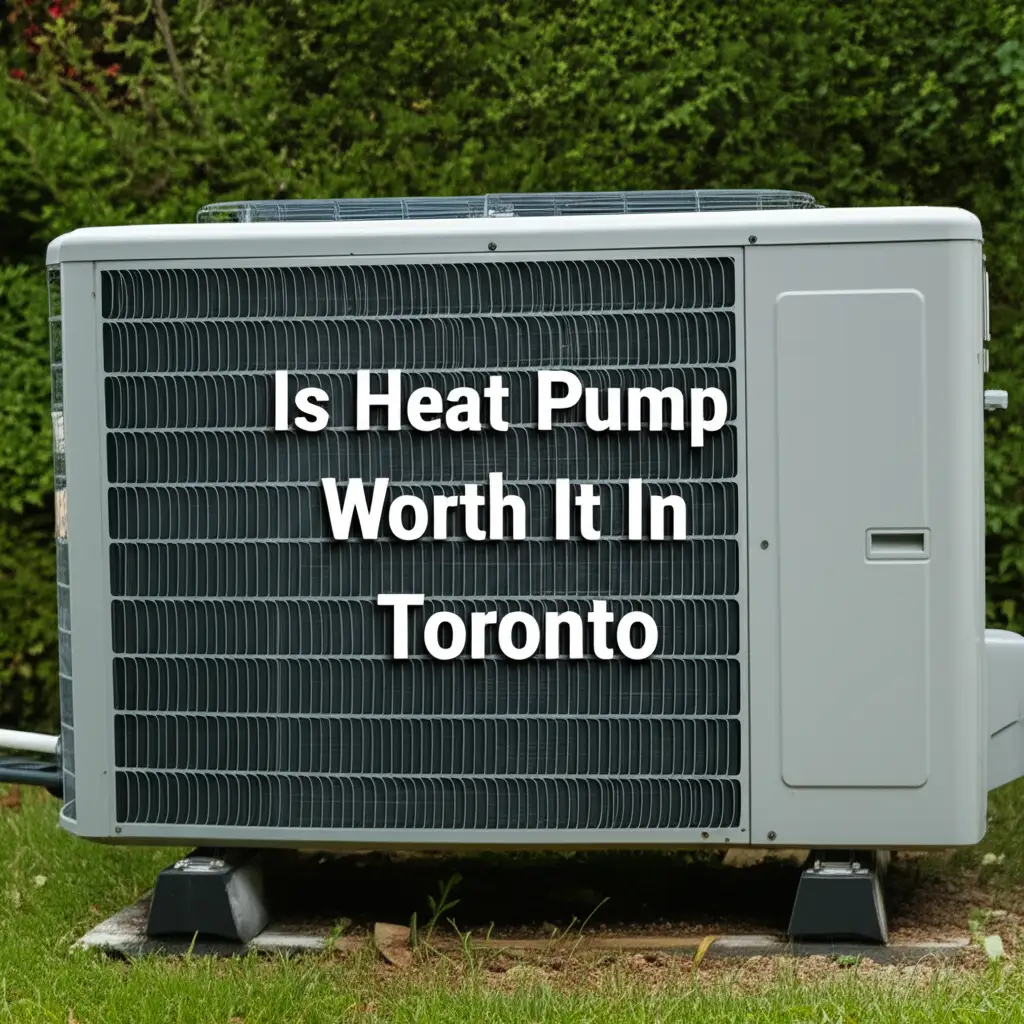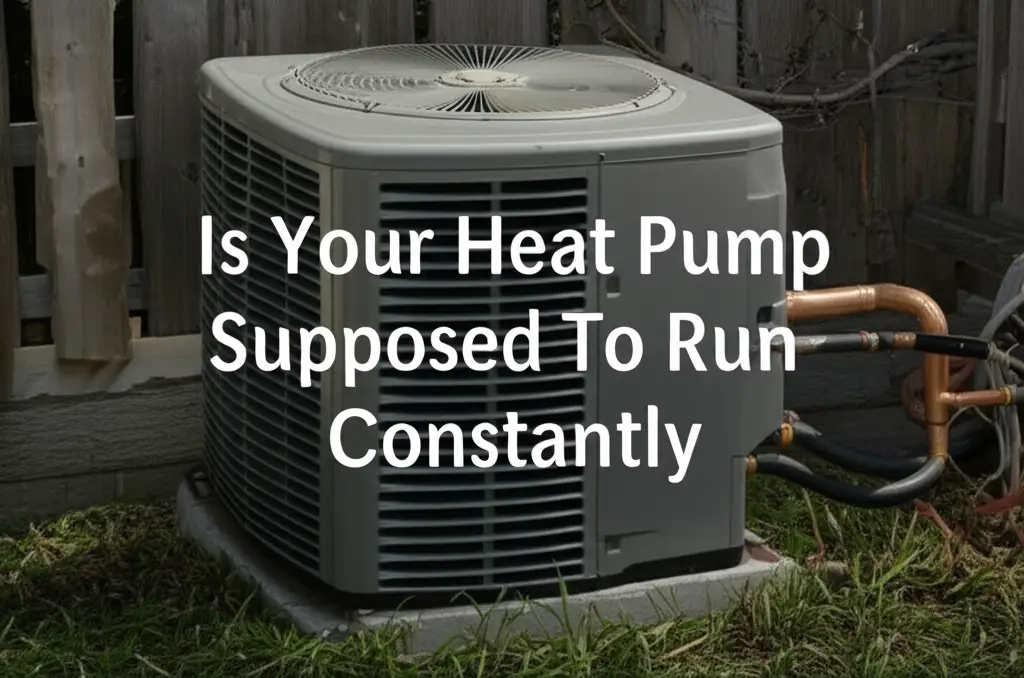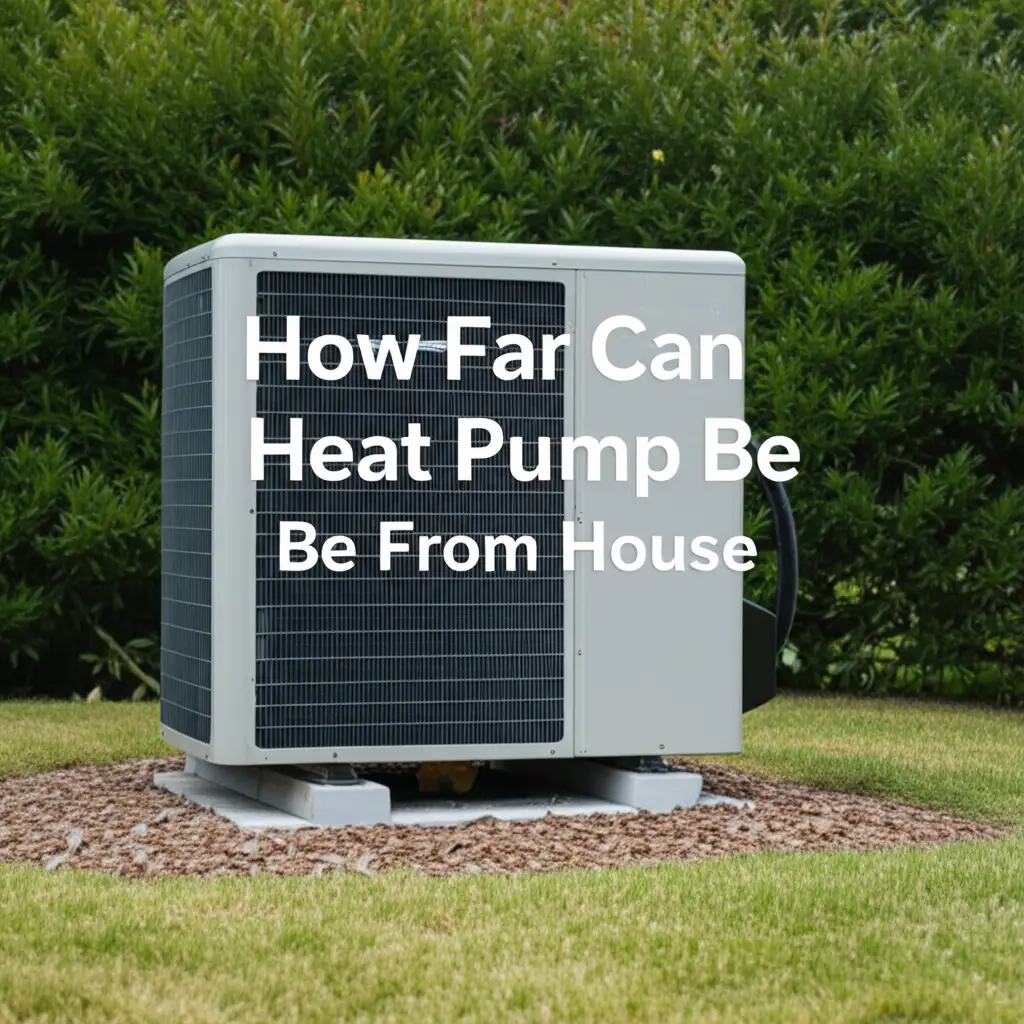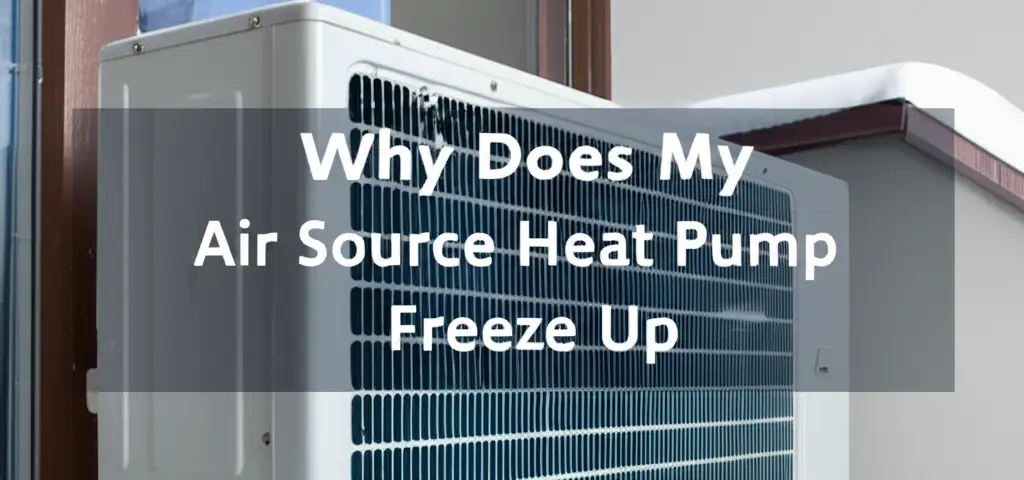· Katria Melrose · HVAC & Energy Efficiency · 11 min read
Is Heat Pump Worth It In Toronto

Is Heat Pump Worth It In Toronto?
Many Toronto homeowners often wonder about upgrading their heating and cooling systems. Our city has distinct seasons. We need reliable comfort all year round. Heat pumps have become a popular topic for discussion.
I understand this concern. You want a system that works well and saves money. This article will help you decide if a heat pump is right for your Toronto home. We will look at costs, energy savings, and available grants. You will also learn about their environmental benefits.
Takeaway
- Heat pumps offer significant long-term savings on energy bills.
- Government grants make initial installation costs much lower.
- They provide efficient heating and cooling for Toronto’s varied climate.
- Heat pumps reduce your carbon footprint.
- Consider your home’s insulation and electrical system before installing.
Is a heat pump worth it in Toronto? Yes, absolutely. For most Toronto homes, a modern heat pump provides efficient heating and cooling, significant long-term energy savings, and helps reduce your environmental impact. Generous government grants further enhance their financial appeal.
Understanding Heat Pumps for Toronto’s Climate
People often ask me if heat pumps truly work in Toronto’s cold winters. The answer is a clear yes. Modern heat pumps are designed for cold climates like ours. They extract heat from the outside air, even when temperatures drop below freezing.
Traditional furnaces burn fuel to create heat. Heat pumps move existing heat. This process makes them very efficient. They can heat your home in winter and cool it in summer.
Most Toronto homes use air source heat pumps. These units sit outside your home and connect to your indoor ductwork. They work much like an air conditioner but can reverse their operation. Many homeowners worry about their performance on very cold days. Modern cold-climate heat pumps can operate effectively down to -25°C or even -30°C. They have backup heating elements or can work with a furnace. For detailed information on how they provide heat, you can read about how to get heat from a Mitsubishi heat pump. You can also learn how to change a heat pump from F to C if your current system uses Fahrenheit.
The Financial Case: Costs and Savings of a Heat Pump in Toronto
The initial cost of installing a heat pump in Toronto can seem high. A new heat pump system might range from $4,000 to $10,000, or even more for larger homes or complex installations. This price includes the unit, installation, and sometimes ductwork modifications. However, this upfront cost is offset by substantial energy savings over time.
Heat pumps are much more efficient than traditional furnaces or air conditioners. They move heat instead of generating it. This means they use less electricity to provide the same amount of comfort. For instance, a heat pump can deliver three to four times the energy it consumes as heat. This makes them far more efficient than electric resistance heating. In fact, you can find out is heat pump more efficient than electric heat.
Many Toronto homeowners rely on natural gas for heating. While gas prices fluctuate, a heat pump often proves cheaper to operate. This is especially true when considering its dual heating and cooling function. The payback period for a heat pump can be as little as 3-7 years, thanks to these savings and available grants. Over the lifespan of the unit, you save thousands of dollars on utility bills.
Government Grants and Incentives for Toronto Heat Pump Installation
This is where the “worth it” factor truly shines for Toronto homeowners. Canadian and Ontario governments offer significant incentives. These programs dramatically reduce the net cost of a heat pump. This makes them a very attractive upgrade.
The most popular program is the Canada Greener Homes Grant (CGHG). This federal initiative provides up to $5,000 for installing eligible heat pump systems. It also covers up to $600 for pre- and post-retrofit energy assessments. These assessments help identify the best upgrades for your home. They ensure your home meets efficiency standards for the grant.
In Ontario, many homeowners can combine the CGHG with the Enbridge Home Efficiency Rebate Plus (HER+) program. This joint program offers even more money. You can get up to $7,800 for heat pump installations through HER+. The exact amount depends on the system type and your home’s energy performance. This stacked incentive can cover a large portion of the installation cost.
To qualify for these grants, you must work with a registered energy advisor. They will perform the initial assessment. Then, they guide you through the process. Once the heat pump is installed by a certified professional, they conduct a final assessment. The rebates are paid after verification. This financial support makes a heat pump a very smart choice for Toronto residents.
Environmental Benefits and Comfort Advantages of Heat Pumps
Installing a heat pump in your Toronto home offers more than just financial benefits. It significantly reduces your environmental impact. Traditional furnaces burn fossil fuels like natural gas. This releases greenhouse gases into the atmosphere. Heat pumps, in contrast, simply move heat. They use electricity, and increasingly, Ontario’s grid relies on clean energy sources. This transition means your home’s heating and cooling becomes greener.
Switching to a heat pump means a smaller carbon footprint for your household. It contributes to cleaner air in Toronto. This is important for our city’s health and future. Many people feel good knowing their home operates in a more sustainable way.
Beyond environmental benefits, heat pumps offer superior comfort. Unlike furnaces that cycle on and off, heat pumps often run at lower speeds for longer periods. This provides a more consistent temperature throughout your home. You avoid the “cold spots” often found with traditional heating. They also provide both heating and cooling from a single unit. This eliminates the need for separate furnace and air conditioner units. The consistent airflow also helps improve indoor air quality. It avoids the combustion byproducts of gas furnaces.
Challenges and Considerations for Toronto Homeowners
While heat pumps offer many advantages, Toronto homeowners should be aware of a few considerations. Proper sizing and installation are crucial. An undersized unit will struggle to heat your home during the coldest days. An oversized unit will cycle on and off too frequently. This reduces efficiency and lifespan. It is important to find an experienced and reputable HVAC contractor. They should have specific experience with cold-climate heat pump installations in Toronto.
Another point is backup heating. While modern heat pumps work well in Toronto’s winters, some homeowners choose a hybrid system. This means keeping their existing furnace as a backup. The furnace only kicks in on the very coldest days. This ensures comfort even in extreme weather. It also means less wear on the heat pump. You should consider how your heat pump works if you notice issues like why your heat pump is not turning on.
Maintenance is also a factor. Heat pumps require regular cleaning of coils and filters. This keeps them running efficiently. Neglecting maintenance can lead to problems like why your heat pump keeps freezing up or why your heat pump keeps turning on and off. Regular service extends the life of your unit. It also ensures it performs optimally. You can learn about how to clean heat pump coils to do some maintenance yourself.
Noise levels used to be a concern with older heat pumps. Today’s models are much quieter. Most outdoor units produce sound levels similar to a refrigerator. This is usually not an issue for homeowners or neighbors.
Is Your Toronto Home Ready for a Heat Pump?
Before you install a heat pump, it is smart to assess your home’s current condition. The efficiency of any heating and cooling system depends on your home’s insulation. Good insulation keeps heat in during winter and out during summer. Check your attic, walls, and windows for drafts or poor insulation. Upgrading insulation before installing a heat pump can significantly boost its performance. It can also reduce the size of the unit you need.
Your home’s existing ductwork also plays a role. Heat pumps work best with well-sealed and properly sized ducts. Leaky or undersized ducts can waste energy. They also reduce the system’s ability to distribute air evenly. A qualified HVAC technician can inspect your ductwork. They can recommend any necessary repairs or upgrades.
Another important consideration is your electrical panel. Heat pumps are electric appliances. They require sufficient electrical capacity. Older Toronto homes might have smaller electrical panels. They may need an upgrade to handle the new load. This is an added cost to factor into your budget. An electrician can check your panel’s capacity. They can tell you if an upgrade is needed.
Finally, think about the age of your current HVAC system. If your furnace or air conditioner is old and nearing the end of its life, replacing it with a heat pump makes even more sense. You avoid the cost of replacing two separate systems. You also gain the efficiency and comfort benefits of a single, integrated unit. This makes the investment very worthwhile.
Finding a Reputable Heat Pump Installer in Toronto
Choosing the right installer is perhaps the most critical step in getting a heat pump. A bad installation can lead to poor performance, higher energy bills, and early system failure. Always look for HVAC contractors certified to install heat pumps. They should have specific experience with cold-climate models. They should also be familiar with local Toronto building codes.
Start by getting multiple quotes from different companies. A reputable installer will visit your home. They will perform a detailed assessment. This includes checking your home’s insulation, windows, and electrical system. They should also discuss your family’s specific heating and cooling needs. Be wary of companies that give quotes over the phone without a home visit.
Check online reviews and ask for references. Look for companies with a strong track record of customer satisfaction. Ask about their warranty policies. A good installer will offer warranties on both the equipment and their workmanship. They should also provide clear information about maintenance plans and after-sales service.
Ensure the installer is registered for government incentive programs. They can guide you through the grant application process. This ensures you receive all eligible rebates. A professional installer will make the process smooth and stress-free. This ensures your heat pump is a worthwhile investment for years to come.
FAQ Section
Q1: Do heat pumps work in Toronto’s cold winters?
Yes, modern cold-climate heat pumps are designed for Toronto’s winters. They can effectively extract heat from outdoor air down to very low temperatures, often -25°C or colder. Many systems include a backup heating element or can be paired with an existing furnace for extreme cold.
Q2: How much does a heat pump cost in Toronto?
The cost for a heat pump installation in Toronto typically ranges from $4,000 to $10,000. This depends on factors like your home’s size, the system type, and installation complexity. However, significant government grants can reduce your out-of-pocket expenses greatly.
Q3: What grants are available for heat pumps in Toronto?
Toronto homeowners can access the Canada Greener Homes Grant, offering up to $5,000. They can also combine this with the Enbridge Home Efficiency Rebate Plus (HER+) program, potentially adding up to $7,800. These programs substantially lower the net installation cost.
Q4: How long does a heat pump last?
A well-maintained heat pump typically lasts 15 to 20 years. This lifespan is comparable to a traditional air conditioner and often longer than a furnace. Regular professional maintenance and cleaning of components like coils help extend its operational life.
Q5: Do I need a backup furnace with a heat pump in Toronto?
It is not always necessary but can be beneficial. Modern heat pumps handle Toronto’s cold well. Some homeowners prefer a hybrid system, keeping their furnace for backup on the absolute coldest days. This setup can provide extra peace of mind and extend the heat pump’s lifespan.
Q6: How much can I save on energy bills with a heat pump in Toronto?
Energy savings vary based on your home’s efficiency, the old system, and energy prices. Many Toronto homeowners report savings of 30-70% on their heating and cooling costs. The high efficiency of heat pumps leads to significant reductions in your monthly utility bills.
Conclusion
I hope this article has helped you understand if a heat pump is worth it in Toronto. My research shows they are an excellent investment. They provide efficient, year-round comfort for our changing climate. You will see substantial savings on your energy bills over time. The available government grants make the initial cost much more manageable.
Heat pumps also offer important environmental benefits. They reduce your carbon footprint and contribute to cleaner air. As I see it, switching to a heat pump is a smart move for your wallet and for the planet. Consider your home’s readiness and find a qualified installer. Take the next step today to explore this valuable home upgrade. Contact a local HVAC professional for a detailed assessment of your Toronto home.





